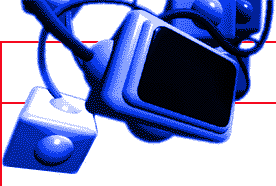| THE UNITED NATIONS TREATY FOR THE EXPLORATION AND USE OF OUTER SPACE
ACTIVITIES - FOR TEACHERS TO ORGANISE
Teachers may run these as discussions or essays, these ideas can be developed into teaching plans for various parts of the curriculum:
- Look at the history of the Space Race and how post Second World War politics were expressed through space exploration. Discuss whether the primary aim of the Treaty - the peaceful exploration and use of space - has been achieved to date and whether this has been (and is) a benefit to mankind in general. How would you - and the world in general - encourage "Peace in Space" in the future.
- Review the Treaty and leading on from 1, question the motives for writing the Treaty articles and the consequences of these.
- From 2, look at the history of the formation of the United Nations - links to other UN sites.
- Explain how a treaty is devised and what the various terms mean so that any treaty can be read and understood.
- Encourage students to make their own list of Treaty articles, or add new ones.
- For instance should there be an article on mineral prospecting and taking material from other objects in the Solar System? Should there be a duty to inform about the discovery of threats to Earth and life in general (rather than just astonauts: see Article V)?
- Activity 3 could be extended to students making their own treaty covering particular activities their school undertakes off-premises, for instance schools trips or away sports events.
- Imagine how it will be by 2020 with the International Space Station in operation, would new additions to the Treaty be required?
- Present a number of possible scenarios - eg astronauts making a completely unexpected discovery on a moon of Jupiter - and have the students role-play, acting out international negotiations over mineral rights for instance.
- Look at how the peaceful use of space has benefitted the world. Catalogue some of the revolutionary changes that have occurred since 1957 in the way people live, that are due to space activities.
- Discuss how how space activities have benefitted developing countries and what more could be done to assist such countries.
- Design a role-play game about space law. It may go something like this:
divide the class into groups of three or four. Each group represents an interest, you might have:
Present a crisis scenario and ask the groups derive a solution.
- A space quiz geared towards the peaceful uses of space and world development.
THE BENEFITS OF SPACE EXPLORATION
SUGGESTED FOLLOW-ON WORK
Here is a brief list of some benefits and achievements of the peaceful uses of space. These may be developed by teachers as part of the national curriculum in a number of subject areas, including mathematics, science, history, geography and languages.
Review how the peaceful use of space has led to benefits for mankind in terms of achievements and hardware:
ACHIEVEMENTS
The history of space exploration and development, including:
Rocket science
Satellites
The Race to the Moon - how superpower rivalry culminated in the manned landings on the Moon, and what this tells us about the peaceful uses of space.
Space stations - how orbiting laboratories have been put to good use for everyone's benefit and what the future holds.
Review how space hardware is used, using examples in the list below. Review the space programmes and other related activities of UN members and describe their purpose and benefits.
SPACE HARDWARE AND ITS APPLICATION
Communications
- telecoms
- telephones and fax
- broadcasting
- video conferencing
- general navigation
- global positioning
- internet
- emergency aids and assistance
Earth Observation
- weather forecasting
- agricultural development and monitoring
- precision farming
- oceanography
- geology and mineral prospecting
- environment monitoring and pollution control
- ozone layer monitoring
Science Satellites
- deep space astronomy
- solar observation
- planetary exploration
- educational satellites
- earth sciences
- interpanetary vehicles
- planetary science
- solar science
- interstellar science
- manned spaceflight
- space stations
- interplanetary travel
- manufacturing - metallurgy
- medical
- space spin-offs
- how space technology is applied on Earth
Go to the Treaty Text |





